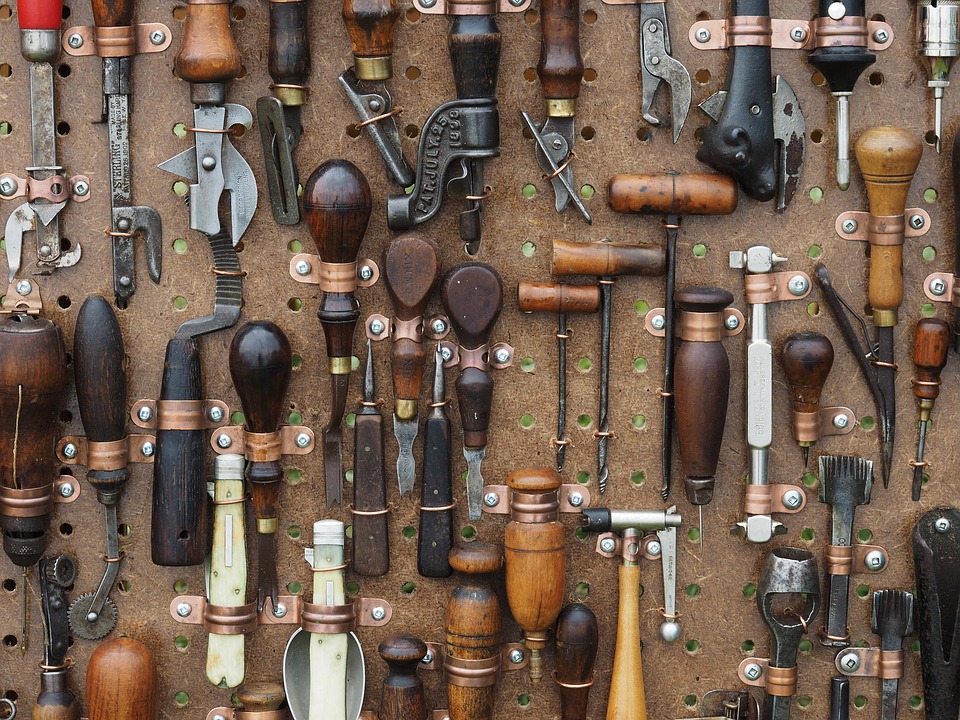
Essential Tools For Every Single Tool kit
 A well-stocked, easily accessible toolbox can make anybody’s life just a little easier. Positioning your tools in a hassle-free location can assist you prevent the hassle of digging out the toolbox each time. You might be shocked how often you really need your tools once they are more available to you. The following tools will get you on the right course towards a total tool collection. In addition to these tools, do not forget to acquire a toolkit and find a home repair manual that you can easily understand.
A well-stocked, easily accessible toolbox can make anybody’s life just a little easier. Positioning your tools in a hassle-free location can assist you prevent the hassle of digging out the toolbox each time. You might be shocked how often you really need your tools once they are more available to you. The following tools will get you on the right course towards a total tool collection. In addition to these tools, do not forget to acquire a toolkit and find a home repair manual that you can easily understand.
Hammer: Hammers are most commonly used for driving nails and splitting things apart. The claw hammer is the most essential hammer to have in your toolkit. It works for both driving in nails and removing them.
Screwdriver: Screwdrivers vary in shapes and size, but the common hand-held screwdriver includes a head, a shaft and a handle. Screwdrivers tighten up or loosen screws and are identified by the screw heads they tighten up or loosen. Phillips screwdrivers are the most fundamental screwdrivers and every toolbox should have at least a couple differing in size.
Pliers: Pliers are useful because they increase grasping ability and leverage. Gripping pliers are the most typical type and are essential to every toolbox. However, pliers can be useful in other ways as well. Cutting pliers, for instance, pinch off materials while crimping pliers are used in crimp electrical terminals and adapters.
Tape Measure: Measuring tape can be made from cloth, ribbon or metal. Yet, most toolbox measuring tape are made from a stiff metal ribbon and housed in a little plastic case, and is self-retracting but can lock into place. An excellent length is twenty-five feet.
Saw: Saws are used to cut a range of materials, though the majority of commonly wood. A saw includes a serrated blade and a handle and is powered by hand, steam, water or electrical energy. A small hand saw will be enough for a standard toolbox and is all that should be needed for small home projects.
Putty Knife: A putty knife is not used for cutting, but rather works for applying and scraping putty. It is an easy tool, but very convenient. It has a flat, flexible blade and, luckily, is the most economical tool listed Wrench: Wrenches are used to develop leverage when turning nuts or bolts. The most fundamental wrench is the open-end wrench. It has a handle with a solid piece of metal in a U-shape on the end which grips the nut or bolt. A box-end wrench is a more advanced wrench and is usually used with nuts or bolts in a hexagonal shape. Other wrenches include a Crescent wrench, a socket wrench or an Allen wrench.
Wrench: Wrenches are used to develop leverage when turning nuts or bolts. The most fundamental wrench is the open-end wrench. It has a handle with a solid piece of metal in a U-shape on the end which grips the nut or bolt. A box-end wrench is a more advanced wrench and is usually used with nuts or bolts in a hexagonal shape. Other wrenches include a Crescent wrench, a socket wrench or an Allen wrench.
Awl: An awl is more of a woodworking tool and works for starting holes prior to drilling. It is an easy tool as well. A scratch awl includes a steel spike with a sharpened tip and a handle.